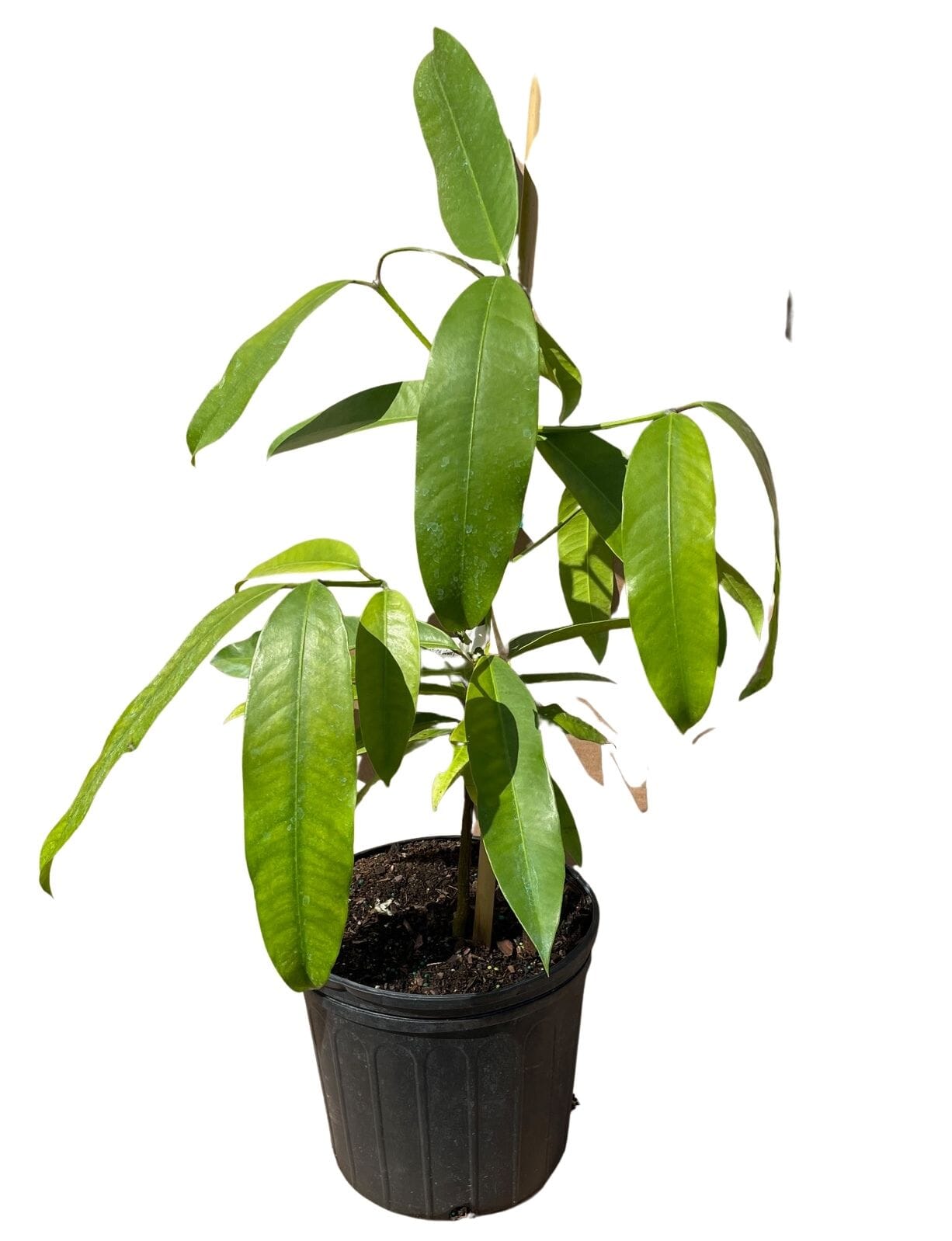

Key Features
Special considerations
Growing and Care Instructions
-
Fertilizing
Fertilize every 6-8 weeks during the growing season with a balanced fertilizer.
-
Watering
Keep soil consistently moist but not waterlogged.
-
Light Requirements
Full sun to partial shade.
| Type | Fruit-bearing |
|---|---|
| Lifespan | 40–50 years |
| Growth | Slow |
| Max Height | 20–25 ft |
| Max Width | 15–20 ft |

10-11 Container / 10-11 Outdoors |
|
Lemon Drop Mangosteen Sour, Yellow Tree - For Sale from Everglades Farms, Florida
Product Overview:
Experience the delightful combination of sweet and sour flavors with the Lemon Sour Mangosteen Tree (Garcinia intermedia). This rare tropical evergreen fruit tree is a vigorous and fast-growing relative of the Mangosteen, offering a unique tropical flavor that is both sweet and tart.
Key Features:
- Unique Tropical Flavor: The Lemon Drop Mangosteen bears sweet and tart fruit that is highly addictive. The taste falls somewhere between pineapple and citrus, making it a refreshing treat.
- Rare and Exotic: Native to Northwestern regions of South America, through Central America and Mexico, this tree is a rare find that adds exotic beauty and flavor to your garden.
- Fast-Growing and Adaptable: Unlike other mangosteen varieties, the Lemon Sour Mangosteen is fast-growing and adaptable, making it a great addition to various landscapes.
Growing and Care Instructions:
- Soil and Watering: Plant in well-drained, fertile soil that retains moisture. Regular watering is essential, especially during the growing season.
- Sunlight Requirements: Thrives in full sun to partial shade, making it versatile for various growing conditions.
- Fertilization: Use a balanced fertilizer during the growing season to encourage vigorous growth and fruit production.
- Pruning: Prune to maintain shape and remove any diseased or dead branches, which helps improve air circulation and reduces the risk of disease.
- Cold Sensitivity: Mangosteen is very sensitive to cold weather. To increase your success chances, we recommend growing it in a container, so you can provide shade and protection from cold weather.
Growth and Adaptability:
- Climate Requirements: Because the tree is truly tropical and cold-sensitive, the best region to grow mangosteen is South Florida, especially Miami-Dade. The tree can be injured if the air temperature falls below 40°F.
- Container Growing: Due to its sensitivity to cold, growing the Lemon Sour Mangosteen in a container allows you to move it indoors during cooler weather, ensuring its survival and health.
- Aesthetic Appeal: Beyond its enticing fruits, this tree offers ornamental value, featuring attractive foliage that enhances the visual appeal of your outdoor space.
Special Considerations:
- Propagation: This tree is propagated from seedlings, ensuring robust and healthy growth.
- Nurtured in Florida: Grown in our premium plant nursery in Homestead, Florida, our Lemon Sour Mangosteen Trees benefit from the region’s ideal subtropical climate, ensuring robust growth and exceptional fruit production.
Why Choose Everglades Farm?
- Quality Assurance: We ensure our plants are healthy and ready to thrive in your garden.
- Sustainability: Our nursery practices eco-friendly methods to support sustainable agriculture.
- Customer Support: Expert guidance and support to help you succeed in growing your Lemon Sour Mangosteen Tree.
Elevate your gardening experience with the Mangosteen Lemon Sour, Yellow Tree from Everglades Farms. Enjoy the unique flavors and the ornamental beauty of this rare tropical tree. Order your tree today and add a touch of the tropics to your outdoor space.



